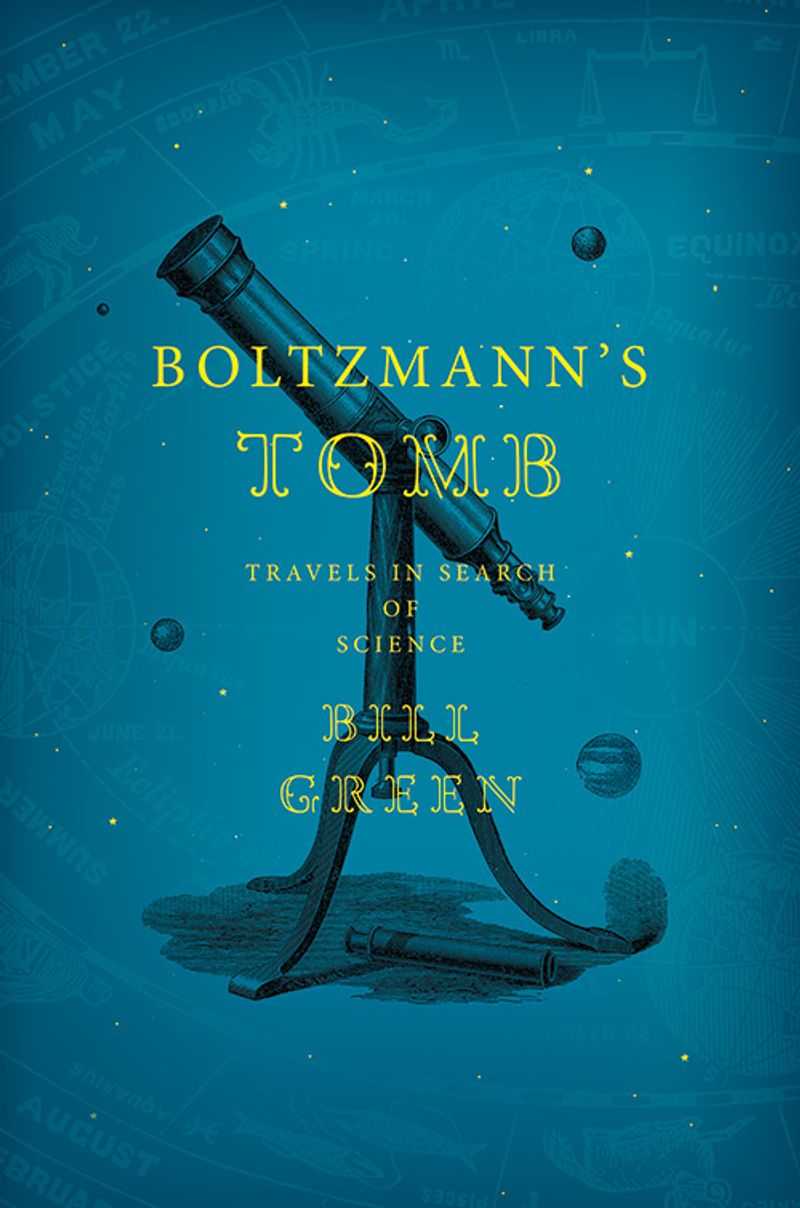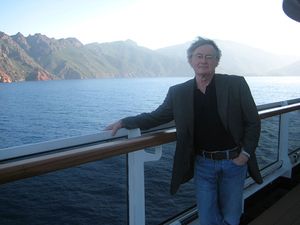[Green’s] writing is always graceful, often lyrical. This is science by way of Camus . . . a book ‘about time and chance and dreams we bring with us and which shape who we are and what we become.’
Boltzmann’s Tomb
Travels in Search of Science
From Cambridge, England to Oxford, Ohio, Vienna to Antarctica, Bill Green takes us on a globe-spanning pilgrimage to important sites of scientific discovery and along the way relates the captivating stories of the scientists who lived and worked there. As in his award-winning Water, Ice & Stone, Green interweaves the story of his own lifelong evolution as a scientist with a travelogue that is a personal and universal history of science.
With cautionary notes that echo Elizabeth Kolbert’s Field Notes from a Catastrophe, this book—like Richard Holmes’ The Age of Wonder—serves as a marvelous introduction to the great figures of science. Along with lyrical meditations on the tragic life of Galileo, the mystical Johannes Kepler, the wildly eccentric Tycho Brahe, and the universal vision of Sir Isaac Newton, Green’s ruminations return throughout to the lesser-known figure of Ludwig Boltzmann. Using Boltzmann’s theories of randomness and entropy in the microscopic world as a larger metaphor for the unpredictable paths that our lives take, Green shows us that science, like art, is a lived adventure, the remnants of which are left in the form of a painting or a poem, or sometimes as an equation etched in stone.

Ebook
- ISBN
- 9781934137529
Hardcover
- ISBN
- 9781934137352
Bill Green is a geochemist and professor emeritus at Miami University in Oxford, Ohio. He is also the author of Boltzmann’s Tomb: Travels in Search of Science and Water, Ice & Stone: Science and Memory on the Antarctic Lakes, which received the John Burroughs Medal for Distinguished Natural History Book, was a finalist for the PEN/Martha Albrand Award, and was excerpted in The Ends of the Earth: An Anthology of the Finest Writing on the Arctic and the Antarctic, edited by Elizabeth Kolbert.
Green first traveled to Antarctica in 1968 and began conducting research there in 1980. To date he has been there nine times and has published many articles on the biogeochemical processes in the pristine lakes and meltwater streams of the McMurdo Dry Valleys.
visit author page »Praise for Boltzmann’s Tomb
Blending analysis and lyricism, Green’s engaging tale begins and ends in wonder, with illuminating, provocative, and, occasionally, heartbreaking stops in between. Always searching for underlying patterns in nature but also keenly aware of the fateful role of randomness, Green makes a convincing case that science is a uniquely human endeavor; the universe, a place that’s uniquely suited to human inquiry and imagination.
— Edwin Dobb, feature writer, Harper’s, The New York Times Magazine, National Geographic
Bill Green’s work and writing prove over and over again that C.P. Snow was flat wrong when he claimed that science and art are separate and mutually incomprehensible cultures. This wonderful scientific memoir captures the romance and beauty of research in precise poetic prose that is as gorgeous and evocative as anything written by Rilke, painted by Seurat, or played by Casals.
— Mary Doria Russell, author of Doc and Dreamers of the Day
An autobiography, a meditation on chance, a luminous retracing of the path of discovery … the pleasures of this book are many, but what makes it glow with beauty is one thing, Bill Green’s sure confidence that science is an exercise of the imagination.
— Francis Spufford, author of I May Be Some Time
The stark but rich simplicity of the epitaph on Boltzmann’s tomb provides the link for the steps in Bill Green’s engaging journey in search of science. This is a personal journey, rich in erudite and felicitously expressed sensitive observation and an utter joy to read. Go on this journey with him, and encounter the human side of science and its rewards: you too will be rewarded.
— Peter Atkins, author of Four Laws That Drive the Universe and Galileo’s Finger: The Ten Great Ideas of Science

